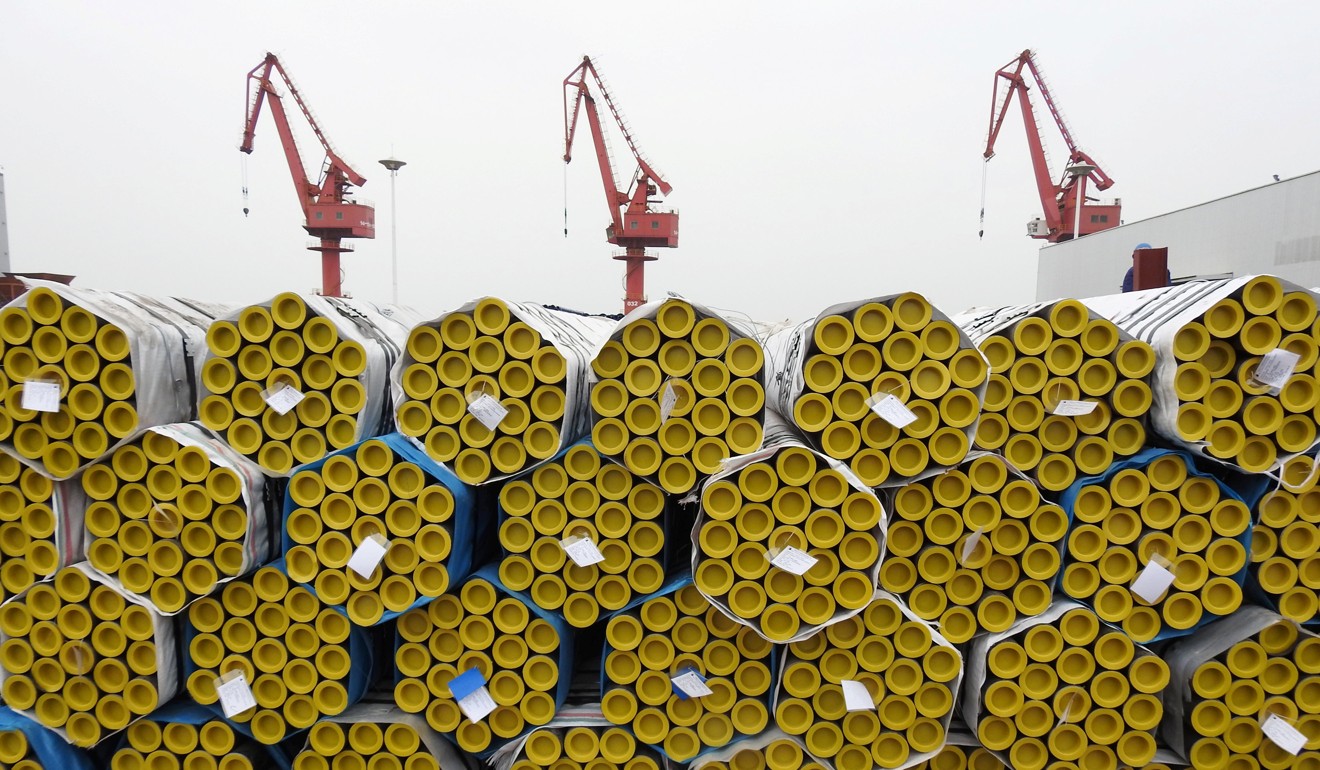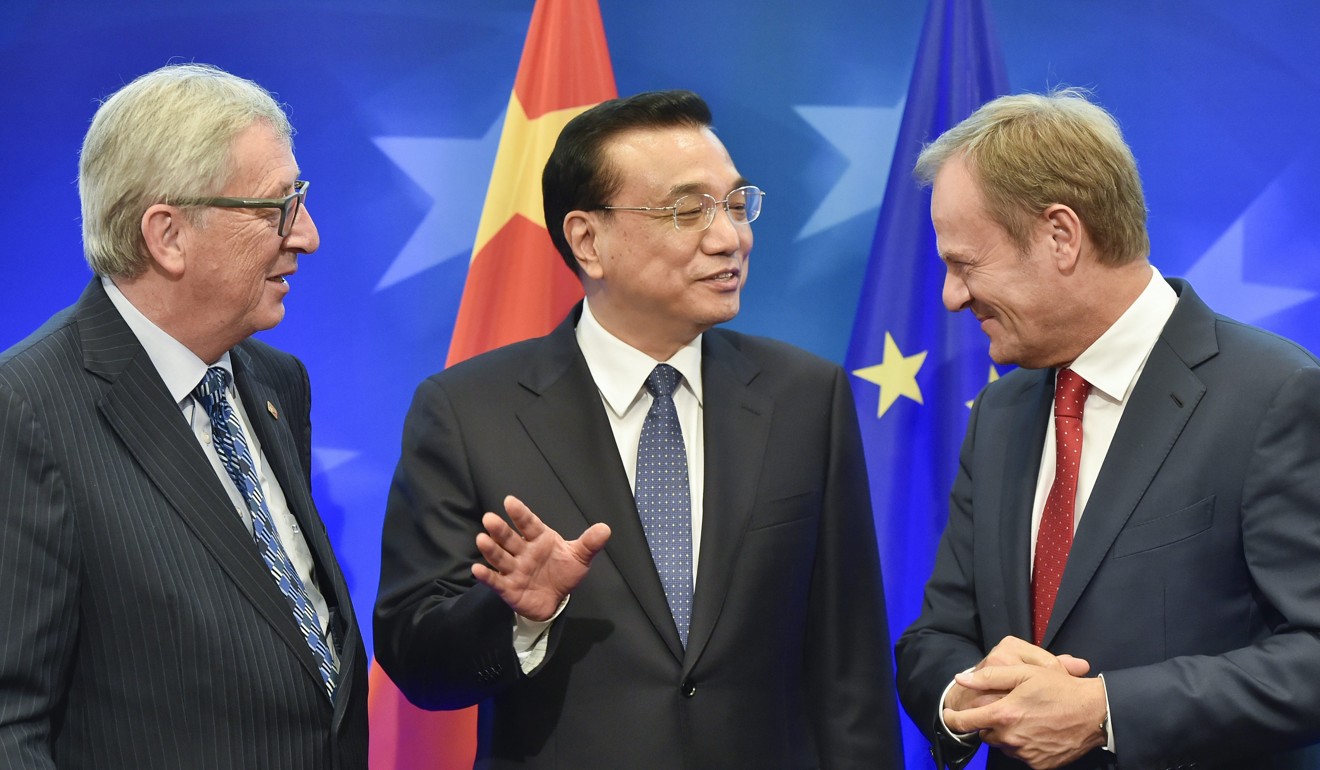
EU to seek reciprocity from China at top-level talks this week
Europeans increasingly questioning why they should welcome investment from a country that isn’t similarly open to investments from them, says EU ambassador to China
The European Union is hoping for progress on bilateral investment, steel overcapacity and infrastructure cooperation in top-level talks with China beginning on Friday, its ambassador to China says.
Chinese Premier Li Keqiang will lead a large delegation to Brussels for the China-EU Summit on June 2, with topics likely to be discussed ranging from industrial overcapacity to investment, trade and tourism.
Reciprocity would be a major focus, EU ambassador to China Hans Dietmar Schweisgut told the South China Morning Post.
“At a time when concern in Europe about the negative effects of globalisation is rising, Europeans now increasingly ask why we welcome investment from a country which is not similarly open to investments from Europe, e.g. in sectors such as automotive, financial services and utilities,” he said, adding that reciprocity needed to be addressed, “otherwise we will have a negative backlash inside the EU and we will risk anti-China sentiment, which is not in the interests of China or the EU”.
Schweisgut said one way to address the issue was to speed up talks on a bilateral investment agreement which would offer both sides investment protection and market access.
“I hope the summit will give a strong signal that both sides have the determination to speed up and reconfirm their ambition to have a very comprehensive agreement,” he said.

Accusations that China has been dumping steel products at prices below fair value, distorting global markets, have been a thorny issue in China-EU relations for some time. The amount of steel overcapacity in China has been estimated to be twice the EU’s total production, and European steel industry associations have been harshly critical of EU leaders’ handling of the issue.
Luxembourg-based ArcelorMittal said this month that continued overcapacity in the global steel industry, especially in China, meant the sector was still affected by “unfair imports” in many of its key markets.
China’s Hebei province, which produces more steel in a year than the whole EU, admitted this month it was still failing to implement policies aimed at curbing overcapacity.
China and the EU agreed last year to set up a platform to track the trade in steel between China and Europe, but Schweisgut said progress had been much slower than expected.
“We just had the first vice-minister-level meeting a week ago in Beijing,” he said. “We basically defined the references and work programme of the platform. We are not interested in process but results.”
On the infrastructure front, the EU launched an investigation last year into whether plans for a Beijing-funded high-speed railway line between Belgrade and Budapest – the capitals of EU candidate Serbia and EU member Hungary respectively – complied with EU laws and regulations.

The project was initiated under the China-Central and Eastern Europe cooperation framework, also known as the 16+1 initiative, which has been viewed as the key to driving China’s “belt and road” trade and infrastructure ambitions into the heart of Europe. However, it has sparked concerns among some EU members that China’s increasing influence might pose a threat to EU solidarity.
“The investigation is not targeted against China,” Schweisgut said. “China is very much aware that projects conducted in the EU have to be in compliance with EU policy and legislation.
“I know there are suspicions [about 16+1], but just like we respect one China, we hope China respects one European Union.”
The EU refused to sign a trade sub-statement at this month’s belt and road forum in Beijing, but Schweisgut said that would not affect the bilateral trade relationship.
“We thought the trade statement was not very carefully drafted, a bit overlapped the leadership statement and we were told there was not enough time to negotiate,” he said. “But the leadership statement was thoroughly negotiated and the EU thought it included a number of principles we think important.
“We hope the [belt and road] initiative will be market-driven, inclusive and have a broad international framework and allow joint ownership. We also feel it makes sense to respect the principle of open procurement, which is the most effective way to allocate resources.
“We hope the upcoming EU-China summit can offer an opportunity to further deepen the process.”
He said the two sides would also hold talks on infrastructure development and would start negotiations on visa requirements to make travel easier. They might also deepen cooperation on agricultural trade and research and development, Schweisgut said, would continue their intellectual property rights dialogue and would expand talks on competition policy to include state subsidies.

